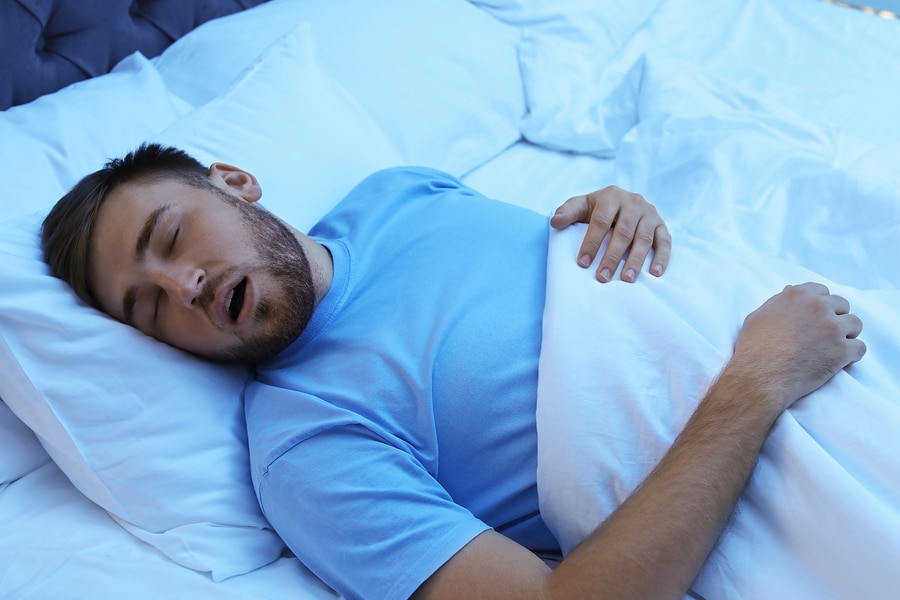
Did you know that apnea affects oral health? In the United States, 22 million people are affected by sleep apnea—and that’s only the number of those diagnosed. Sleep apnea, which is a disorder that causes people to experience interruptions in normal breathing while they sleep, is a very dangerous disorder. Since it causes a person to momentarily stop breathing, it can be potentially life threatening. Not only that, but sleep apnea is surprisingly harmful to a person’s oral health.
Types of Sleep Apnea
Before going into more detail on apnea affects oral health, it’s important to understand the different types of sleep apnea—obstructive, central, and mixed or complex. Obstructive sleep apnea is the most common type of sleep apnea and is caused by a blocked airway. The airway can be blocked for a number of reasons; most often it is the tongue that collapses against the soft palate and back of the throat. When this happens, no air can enter.
Central sleep apnea is more rare, and occurs when your brain doesn’t signal your body to continue breathing while you’re sleeping. Some people have one form or the other, and others have a combination of the two. If you have a combination, it’s called mixed or complex sleep apnea. While the brain usually receives a signal to wake up when there’s a lack of air, people with sleep apnea experience this hundreds of times over the course of one night. This not only causes a serious disruption to the sleep cycle and quality of sleep, it has oral repercussions as well.
Common Struggles
People with sleep apnea commonly struggle with severe gum disease, or periodontitis. They’re also more likely to develop temporomandibular joint disorders (TMD). The reason for this is because sleep apnea makes the mouth very dry, which irritates the gums and causes inflammation. TMD is caused by sleep apnea due to the jaw reflexively clenching and relaxing throughout the night in a struggle to maintain an open airway. Both gum disease and TMD can lead to other, more serious problems.
Tips to Help Apnea Affects Oral Health
The best way to combat gum disease and TMD from sleep apnea is to regularly see your dentist. Dentists are often the first to notice a patient has sleep apnea, other than their partners, and provide necessary cleaning and treatment to combat the effects of sleep apnea on their oral health. To take a life changing step towards a good night’s sleep and better oral health, give the dentists at Artistic Dental a call today. To schedule an appointment or learn more about how we can help you with your sleep apnea, call us today at 602-840-5400.
